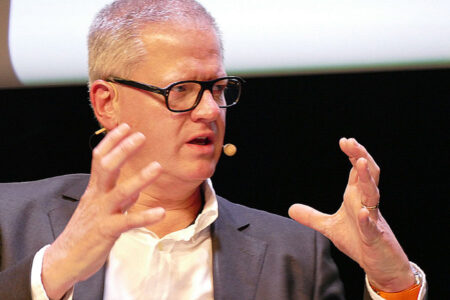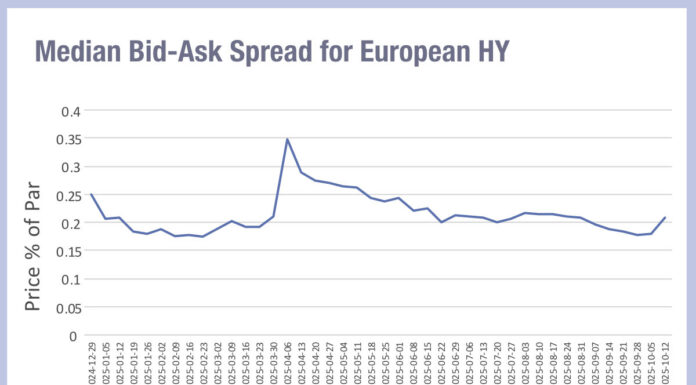What progress is being made in the world of blockchain, and how is DLT technology transforming the world of digital bonds, crypto trading, and custody?
This was the topic of discussion for Valérie Noël of Syz Group, Stefan Bosshard of Six Digital Exchange (SDX) and Christoph Hock, former head of multi-asset trading at Union Investments, speaking on Day Two of FILS Europe 2023.

Product head for fixed income at SDX, Bosshard, made a persuasive case that digital bonds are the future. “It’s never been as easy as today to trade digital bonds,” he said. “Some of you might be trading or holding digital bonds and you don’t even know it. And that’s not a bad thing. In our discussions with the buy-side investors, many of them didn’t know they were holding digital bonds, and that’s what we wanted to do.”
Digital bonds are regulated, they can be traded, they can be transferred to the traditional world, they can be traded on conventional platforms like MarketAxess, and that may be why many investors have not noticed their encroachment upon the traditional debt business. But there is more to come. Currently if you are trading a bond, its information is tied directly to the ISIN or CUSIP code attributed to the bond, which one depending on which side of the Atlantic you are on. With digital bonds, the bond information is coded into the asset itself, so the bond can grab the information to calculate its own rate, and pay that out automatically. It can add the market data, the bids and offers, into the bond itself.
That is all possible, according to Bosshard. “If you want to trade a digital bond on our stock exchange, you can have instant settlement, so if you’re in a liquidity bottleneck or you want more agility, you can sell and receive the assets instantly on our exchange, rather than waiting for T+2,” he said. But outside the world of conventional, digitised, bonds, are crypto assets like Ether and Bitcoin really investable, especially for institutional investors? Noel, head of trading at Syz Group, which started trading digital assets in 2022, believes so. “There are so many different ways to get exposure on digital assets now – through an exchange traded product (ETP), there is likely to be an exchange traded fund (ETF) in the US soon, and we recently launched a fund of hedge funds with a discretionary mandate,” she said. “There is obviously some risk, and of course you have to be careful of the issuers, of what the coins are. But the important element is diversification into the segment.”

Regulation remains crucial, however. “You need a framework so you know what you can do and what you can’t do,” she warned. Hock comes at the issue from a slightly different angle – focusing on how to make the process more efficient. “Does the investor benefit when competition and new roles are created in the ecosystem and innovation is kicking in and costs are driven down?” he asked. “The answer is yes. Right now we are looking at central depositaries – we have an oligopoly situation where costs are unjustifiably high at the moment, and we need competition to come into the system. We now have a newly created role for crypto registration based on recent regulation, and it’s an area where we can try to drive costs down. When looking at custody and settlement of processes, that’s one example.” But digital developments could also have a broader impact on the fixed income market – and in some less expected ways.
“In the past, primary exchanges haven’t played a key role in fixed income trading,” pointed out Hock. “But people like SDX are plying a pioneering role and I wouldn’t be surprised to see other exchanges stepping in to try and capture fixed income market share that they lost decades ago, through DLT. This will be part of the innovation race, and from a client perspective, this competition and innovation is really important. We want to see these oligopolies being dismantled and costs brought down.”

“It’s about adaptation,” said Noël. “The world is changing and we need to be open-minded.” “The train to digital assets has already left the station,” added Bosshard. “We’re on the way – we have clients, we have transactions. It’s not going too fast yet, you can still get on board, but it’s gathering speed.”
“It’s all about creating benefits for the entire industry, and it’s not only tokenisation, it’s digitalisation and AI and data signs and the entire complex ecosystem,” concluded Hock. “This will be a gamechanger for the industry – we’re not just implementing this technology because it’s sexy, it’s about generating real change. Do you want to be a Nokia or an Apple?”
©Markets Media Europe 2023
©Markets Media Europe 2025












